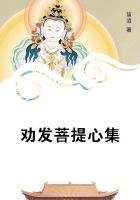"But do care a bit for flattery, my lady," said De Craye. "'Tis the finest of the Arts; we might call it moral sculpture. Adepts in it can cut their friends to any shape they like by practising it with the requisite skill. I myself, poor hand as I am, have made a man act Solomon by constantly praising his wisdom. He took a sagacious turn at an early period of the dose. He weighed the smallest question of his daily occasions with a deliberation truly oriental. Had I pushed it, he'd have hired a baby and a couple of mothers to squabble over the undivided morsel."
"I shall hope for a day in London with you," said Lady Culmer to Clara.
"You did not forget the Queen of Sheba?" said Mrs. Mountstuart to De Craye.
"With her appearance, the game has to be resigned to her entirely," he rejoined.
"That is," Lady Culmer continued, "if you do not despise an old woman for your comrade on a shopping excursion."
"Despise whom we fleece!" exclaimed Dr. Middleton. "Oh, no, Lady Culmer, the sheep is sacred."
"I am not so sure," said Vernon.
"In what way, and to what extent, are you not so sure?" said Dr.
Middleton.
"The natural tendency is to scorn the fleeced."
"I stand for the contrary. Pity, if you like: particularly when they bleat."
"This is to assume that makers of gifts are a fleeced people: I demur," said Mrs. Mountstuart.
"Madam, we are expected to give; we are incited to give; you have dubbed it the fashion to give; and the person refusing to give, or incapable of giving, may anticipate that he will be regarded as benignly as a sheep of a drooping and flaccid wool by the farmer, who is reminded by the poor beast's appearance of a strange dog that worried the flock. Even Captain Benjamin, as you have seen, was unable to withstand the demand on him. The hymeneal pair are licensed freebooters levying blackmail on us; survivors of an uncivilized period. But in taking without mercy, I venture to trust that the manners of a happier era instruct them not to scorn us. I apprehend that Mr. Whitford has a lower order of latrons in his mind."
"Permit me to say, sir, that you have not considered the ignoble aspect of the fleeced," said Vernon. "I appeal to the ladies: would they not, if they beheld an ostrich walking down a Queen's Drawing Room, clean-plucked, despise him though they were wearing his plumes?"
"An extreme supposition, indeed," said Dr. Middleton, frowning over it; "scarcely legitimately to be suggested."
"I think it fair, sir, as an instance."
"Has the circumstance occurred, I would ask?"
"In life? a thousand times."
"I fear so," said Mrs. Mountstuart.
Lady Busshe showed symptoms of a desire to leave a profitless table.
Vernon started up, glancing at the window.
"Did you see Crossjay?" he said to Clara.
"No; I must, if he is there," said she.
She made her way out, Vernon after her. They both had the excuse.
"Which way did the poor boy go?" she asked him.
"I have not the slightest idea," he replied. "But put on your bonnet, if you would escape that pair of inquisitors."
"Mr. Whitford, what humiliation!"
"I suspect you do not feel it the most, and the end of it can't be remote, said he.
Thus it happened that when Lady Busshe and Lady Culmer quitted the dining-room, Miss Middleton had spirited herself away from summoning voice and messenger.
Sir Willoughby apologized for her absence. "If I could be jealous, it would be of that boy Crossjay."
"You are an excellent man, and the best of cousins," was Lady Busshe's enigmatical answer.
The exceedingly lively conversation at his table was lauded by Lady Culmer.
"Though," said she, "what it all meant, and what was the drift of it, I couldn't tell to save my life. Is it every day the same with you here?"
"Very much."
"How you must enjoy a spell of dulness!"
"If you said simplicity and not talking for effect! I generally cast anchor by Laetitia Dale."
"Ah!" Lady Busshe coughed. "But the fact is, Mrs. Mountstuart is made for cleverness!"
"I think, my lady, Laetitia Dale is to the full as clever as any of the stars Mrs. Mountstuart assembles, or I."
"Talkative cleverness, I mean."
"In conversation as well. Perhaps you have not yet given her a chance."
"Yes, yes, she is clever, of course, poor dear. She is looking better too."
"Handsome, I thought," said Lady Culmer.
"She varies," observed Sir Willoughby.
The ladies took seat in their carriage and fell at once into a close-bonnet colloquy. Not a single allusion had they made to the wedding-presents after leaving the luncheon-table. The cause of their visit was obvious.














